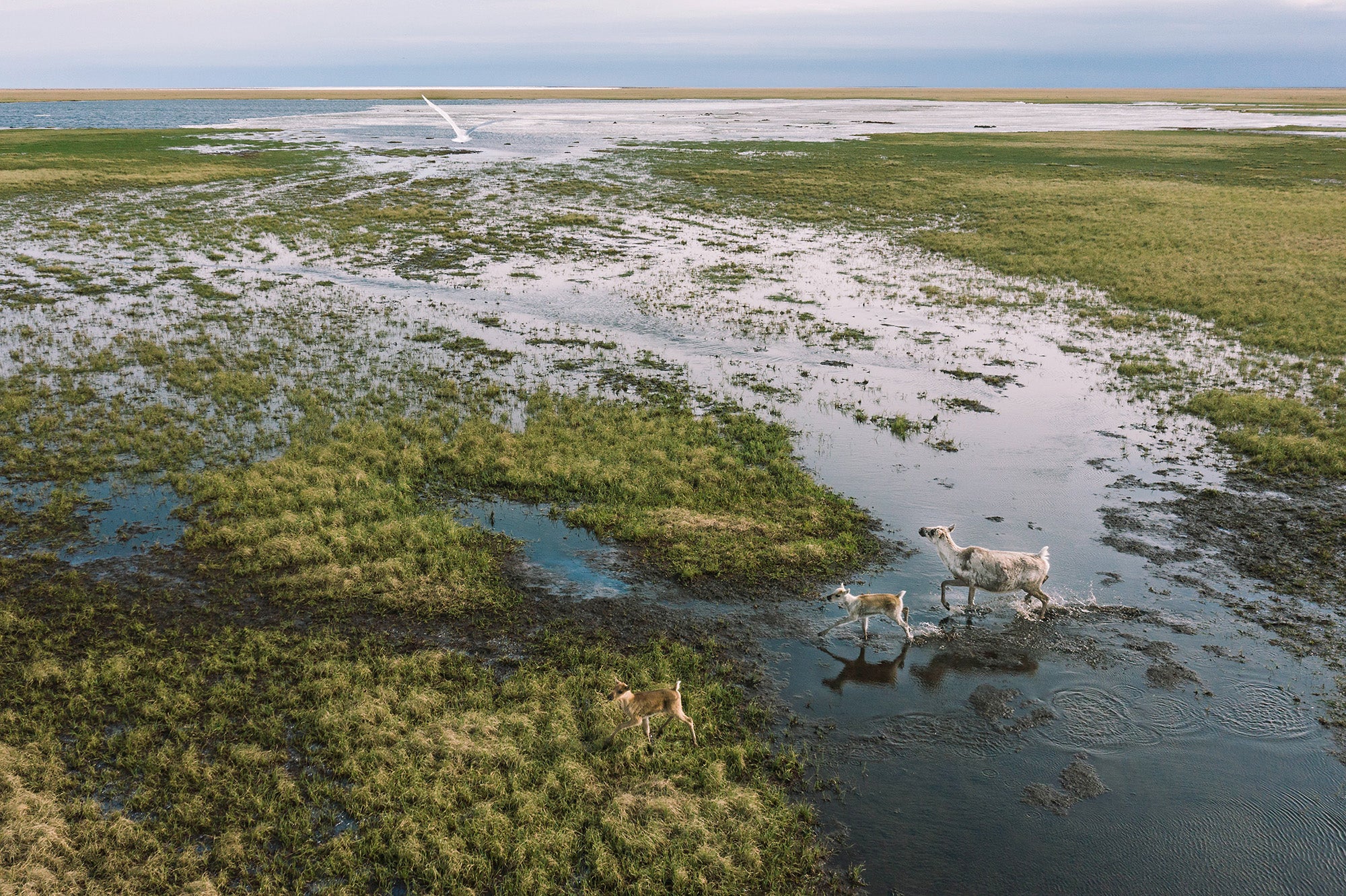Earthjustice goes to court for our planet.
We’re here because the earth needs a good lawyer.
How You Can Help Protect the Western Arctic from Oil and Gas Drilling
This page was published a year ago. Find the latest on Earthjustice’s work.
What’s happening: The Biden administration is seeking public input to identify new areas of Alaska’s Western Arctic that should be protected from oil and gas activity because of their importance to wildlife.
Why it matters: Oil and gas development has transformed some swaths of the Western Arctic, which includes the National Petroleum Reserve-Alaska, into floodlit industrial zones. Essential habitats have been carved up by drilling rigs, roads, airstrips, and mines. So far, this has been limited to a relatively small portion of this vast landscape. But the oil industry has its sights set on much more.
This spring, the Biden administration finalized new regulations that protect more than 13 million acres of the Reserve from fossil fuel development. These rules safeguard some of the most ecologically important areas from development, conserving habitat for migratory birds, polar bears, caribou, and other iconic Arctic species, while strengthening federal authority to protect precious landscapes like these. Now it’s critical for the administration to build on this work to deliver the strongest possible protections for the Arctic.
Why the Western Arctic matters
- Stronger protections are needed: Bids for new fossil-fuel drilling spiked dramatically during the Trump administration, and fossil fuel development could continue to transform this vast landscape if nothing is done to protect undeveloped areas. Because of the climate impact of fossil fuel development, what happens in America’s Arctic impacts everyone on Earth. Our climate is on the line.
- The Special Areas of the Western Arctic are a biodiversity powerhouse that supports polar bears, musk oxen, migrating caribou, birds from around the globe, and other unique wildlife. These are some of the best intact ecosystems left in the U.S., supporting a distinct diversity both of Arctic wildlife found nowhere else in the world and of birds that hatch here and then migrate throughout the world. All of this would be harmed by oil and gas exploration.
- Our planet can’t afford more oil projects: Earthjustice is dedicated to transitioning away from fossil fuels to prevent the worst consequences of climate change. We must keep Arctic oil in the ground if we want to avert a climate catastrophe. Since 2005, a full 25 percent of U.S. greenhouse gas emissions have come from fossil fuel extraction from our public lands and waters. As climate change intensifies, we must protect our public lands instead of auctioning them off to the highest bidder.
What’s included in the new protections:
- Preserving precious habitat: The regulations ensure maximum protection for more than 13 million acres of Special Areas—federally determined ecologically sensitive landscapes—in and around the Reserve, increasing safeguards for habitat for migratory birds, polar bears, caribou, and other iconic Arctic species.
- Halting new fossil fuel projects: They establish an outright prohibition on any new oil-and-gas leasing for 10.6 million acres.
- Honoring Alaska Native rights: The new protections encompass the right of subsistence activities for Alaska Native communities. The Bureau of Land Management (BLM) also encouraged exploring co-stewardship opportunities with surrounding Alaska Native Tribal communities for management of the Special Areas.
- Reestablishing federal authority: The regulations clarify and strengthen the BLM’s authority to protect the environment across the entire Reserve.
Next up: Willow and other fights to protect the Arctic
- Eyes on Willow: The new protections do not undo ConocoPhillips’ widely condemned Willow Project, which a federal district court in Alaska declined to halt last fall.
- Earthjustice is challenging the project on behalf of conservation groups and is awaiting a ruling from the Ninth Circuit Court of Appeals.
- Looking ahead, more is needed to ensure that the oil industry does not cause further damage to the Reserve, a region that has abundant oil reserves and is already warming four times as fast as the rest of the planet due to climate change.
- Time to weigh in: The government is requesting input on how to implement the new regulations to better protect subsistence hunting traditions crucial to Alaska Natives, wildlife such as polar bears, three large caribou herds, and vital wetland habitat for birds that travel from all seven continents to nest.

Originally published on April 19, 2024.